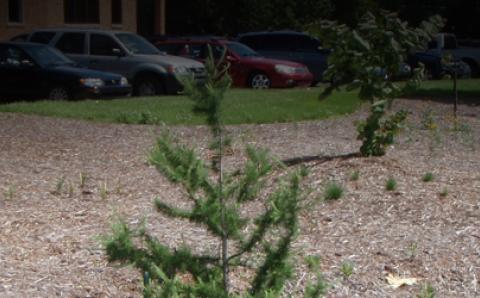Ethics
Q When does income inequality become a justice issue?
A The growing gap between wealthy elites and people surviving in poverty is on the public agenda in a new way. Using historical research, economist Thomas Piketty concludes that a large wealth gap is bad for capitalism in a book titled Capital for the Twenty-first Century. Market economies work better, he argues, when governments take measures to reduce the gap through tax policies and public services that benefit everyone.
People who read the Bible should not be surprised by Piketty’s research. Nations do well, promises Scripture, when people put justice first. Not all income inequality is unjust. Absolute equality in wealth can be unjust if it does not take account of different circumstances.
A justice lens prompts a different question, but it does not ignore inequality. It focuses on living together in a way that allows every person to fulfill God’s calling to care for God’s world. When limited access to resources prevents people from living with dignity and using their God-given gifts to contribute to society, then something is wrong with the way resources are being managed. God created enough for all.
When people use wealth and power to control others or to “play god” in the lives of other people instead of enabling others to be co-creators with God, then relations between rich and poor are unjust.
Justice leads us to ask more challenging questions but also more hopeful ones in the important public debate about distribution of wealth in our times.
—Kathy Vandergrift teaches public ethics to university students and advocates for the rights of children.
Outreach
Q Do we take the salvation of our neighbors seriously enough? Our church has no real outreach plans, and other than the occasional sermon that mentions hell, it appears we've forgotten what is at stake. Shouldn't we be more urgent?
A Sharing the hope of the gospel with our friends and our neighbors should be embraced as a gift. Yet it is normal that we are sometimes reticent to share this hope with those closest to us. Our religious views are a deeply personal subject, and not all of us feel prepared to discuss such matters.
It is helpful to think of salvation as much broader than just what happens after we die. It certainly includes that. But if that’s all, we are giving short shrift to the wideness of the gospel. When we frame salvation as tapping into life with the Creator of the universe, we see our entire existence as part of a broader divine reality in which we are intimately connected to everything—and everyone—in creation.
Christ invites and enables us to be freed from things that enslave us—worry, greed, selfishness, destructive habits, and more—while bringing us into a life of trust, selflessness, and devotion to a purpose and person greater than ourselves. Salvation is right now! It is something we need to experience and embrace daily. And this changes how we relate to other people, our neighborhood, and even our planet.
Ideally, such an ongoing transformative relationship with God is evident in everything we do. When that happens, a conversation about what motivates you might be a natural topic of conversation.
Let’s reframe salvation from a focus on escape from punishment after we die to experiencing life with God in Christ now. This difference will be good for our neighbors and our neighborhood.
—Bryan Berghoef was a CRC church planter and is the author of Pub Theology: Beer, Conversation, and God.
Faith Formation
Q It seems like we’re “paralyzed disciples.” Twenty years ago our classis was traumatized by the women in office debates. Our own congregation was not damaged by this turmoil, but our pastor confided that it’s almost impossible to start new initiatives because we’re so anxious about returning to those difficult times. Is this disease terminal?
A I sure hope not! Your congregation needs to learn that healthy churches need conflict, provided that this conflict is surrendered to the Holy Spirit and covered by the fruit of the Spirit (Gal. 5:22-23).
Only two kinds of churches never have conflict. The first is cults, because they have given one person permission to make every decision. The second is dead churches, because they have nothing to decide that matters. Your paralysis is headed toward the second category.
I would encourage your pastor to preach a four-week series on conflicts in the book of Acts, pointing out the crucial role these conflicts played in the growth of the church. Proverbs 27:17 could be used as a motif throughout the series: “As iron sharpens iron, so one person sharpens another.” It might also be wise to bring someone in to lead a workshop with your council along the lines of “How the Spirit uses conflict to mature the church.”
Conflict will always be messy, and it is never fun. But on this side of that final trumpet, we can’t escape it. I like to say that the Lord desires to use our unholy conflicts as “holy growing pains” for his transforming work in and through us. It’s difficult but crucial.
—Syd Hielema is a professor of religion and theology at Redeemer University College in Ancaster, Ontario.








